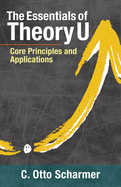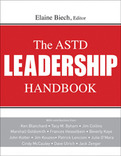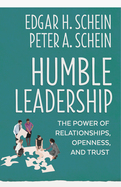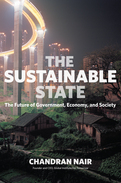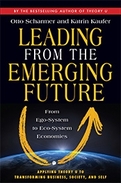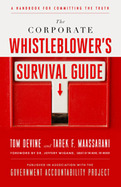This book offers a concise, accessible guide to the key concepts and applications in Otto Scharmer's classic Theory U. Scharmer argues that our capacity to pay attention coshapes the world. What prevents us from attending to situations more effectively is that we aren't fully aware of that interior condition from which our attention and actions originate. Scharmer calls this lack of awareness our blind spot. He illuminates the blind spot in leadership today and offers hands-on methods to help change makers overcome it through the process, principles, and practices of Theory U. And he outlines a framework for updating the “operating systems” of our educational institutions, our economies, and our democracies. This book enables leaders and organizations in all industries and sectors to shift awareness, connect with the highest future possibilities, and strengthen the capacity to co-shape the future.
Provides a complete overview and practical strategies on a full range of leadership topics.
Featuring a who's who of leadership gurus, The ASTD Leadership Handbook is an exciting compilation of insights, ideas, and tools that will enable individuals, teams, and organizations to fully develop their leadership capabilities. It provides a complete overview of leadership and covers a full range of topics, including competencies, development, attributes, and current challenges, taking a broad view of what leadership means. Editor Elaine Biech and her team worked to carefully match up topics with the leading authorities: William Byham on leadership development, Ken Blanchard on ethics, Bill George on authenticity, John Kotter on leading change, Marshall Goldsmith on coaching, Dave Ulrich and Norm Smallwood on getting results, Patrick Lencioni on teams, Leongard Goodstein on strategic planning, Frances Hesselbein on leading the workforce of the future, and many more.
The ASTD Leadership Handbook's five sections -- Leadership Competencies, Leadership Development, Characteristics of Successful Leaders, Contemporary Leadership, and the Global Role of Leadership -- cover all the major leadership areas. Chapters are written from a practical perspective, enabling readers to immediately put the wisdom and experience of the authors to use in their own lives and organizations. The book also includes three dozen tools to help you apply the concepts, such as John Kotter's Eight-Step Change Model, Bill Gentry's Checklist for Avoiding Leader Derailment, Marshall Goldsmith's Mini Coaching Survey, Beverly Kaye and Sharon Jordan-Evan's Jerk Checklist, and Leonard Goodstein's Applied Strategic Planning Model. These tools are available as free downloads on the book's accompanying website.
This handbook sets itself apart in a crowded field by emphasizing leadership development and providing practical approaches to address this crucial need. When you pick up The ASTD Leadership Handbook you hold amost 2,000 years of experience in your hands. This will surely be the definitive leadership resource for many years to come.
Selected chapters from The ASTD Leadershipp Handbook are also available for sale in PDF format: Leadership Whitepapers.
-
Provides a complete overview and practical strategies on a full range of leadership topics
-
Contributors include more than forty-five renowned experts in the leadership field
-
Includes more than sixty activities, tools, and assessments for application of principles and concepts
2018
In this sure to be controversial book, Chandran Nair shows that the market-dominated model followed by the industrialized west is simply not scalable. The United States alone, with less than five percent of the world's population, consumes nearly a quarter of its resources. If countries in Asia, where 60% of the world's population lives, try to follow the Western lead, the results will be calamitous. .
Instead, Nair argues that development must be directed by a state that is willing and able to intervene in the economy . Corporations, which by design demand ever-expanding consumption, need to be directed towards meeting societal needs or otherwise restrained, not unleashed. Development has to be oriented towards the greatest good—clean drinking water for the many has to take precedence over swimming pools for the few. He provides three compelling case studies demonstrating the benefits of such strong state governance and the findings of weak state governance.
This will mean rethinking the meaning of concepts like “prosperity,” “freedom,” and “rights,” and whether democracy is always the best way to ensure responsive government—as Nair writes, “A democracy that cannot work to improve the life of its citizens is not better than a non-democracy that can actually improve quality of life.” Many people will find these to be challenging ideas, but what Nair offers is a model suited to the realities of the developing world, not the assumptions of the dominant culture.
Corporate whistleblowers save lives, prevent fraud, and preserve the environment. But these results come through a long, difficult, draining, and often frightening process that leads many unprepared would-be whistleblowers to give up. Fortunately, they now have the support they need. This unprecedented and authoritative guide covers every step of the process—finding information to support your claims, determining whom to blow the whistle to, dealing with attacks from opponents, enlisting allies, understanding the law, and more.
-
Offers not just authoritative, accessible information but advice on every step of the whistleblowing process
-
Copublished with the Government Accountability Project, which has been aiding and protecting whistleblowers since 1977
-
Illustrated with vivid examples drawn from GAP's thirty-year history
- Click here for Press Release
Corporate whistleblowers save lives, prevent fraud, and preserve the environment. Some even become famous. But what the general public sees is the end result of a long, difficult, draining, and often frightening process. Whistleblowers rarely have any idea what they're in for and, daunted by the ferocity of the resistance and their feelings of isolation and helplessness, some give up, and others are broken financially and emotionally.
Blowing the whistle will always require courage and perseverance, but it no longer has to be done alone. The Corporate Whistleblower's Survival Guide will serve as an expert advisor for anyone contemplating bringing corporate wrongdoers to justice. Tom Devine and Tarek F. Maassarani draw on the accumulated experience of the Government Accountability Project, which since 1977 has helped over 5,000 people take on organizations like AIG, the World Bank, Procter & Gamble, Wyeth Pharmaceuticals--and win.
Devine and Maassarani detail every consideration potential whistleblowers should weigh and paint a vivid picture of the tactics corporations use to attack whistleblowers and cover up or deny damaging revelations. If you are considering blowing the whistle, this book offers hands-on, practical advice on every aspect of the process--finding information to support your claims, determining who to blow the whistle to, enlisting allies, and taking advantage of what legal options exist. The Corporate Whistleblower's Survival Guide will enable readers to bring vital information to light while keeping their sanity, relationships, and careers intact.


